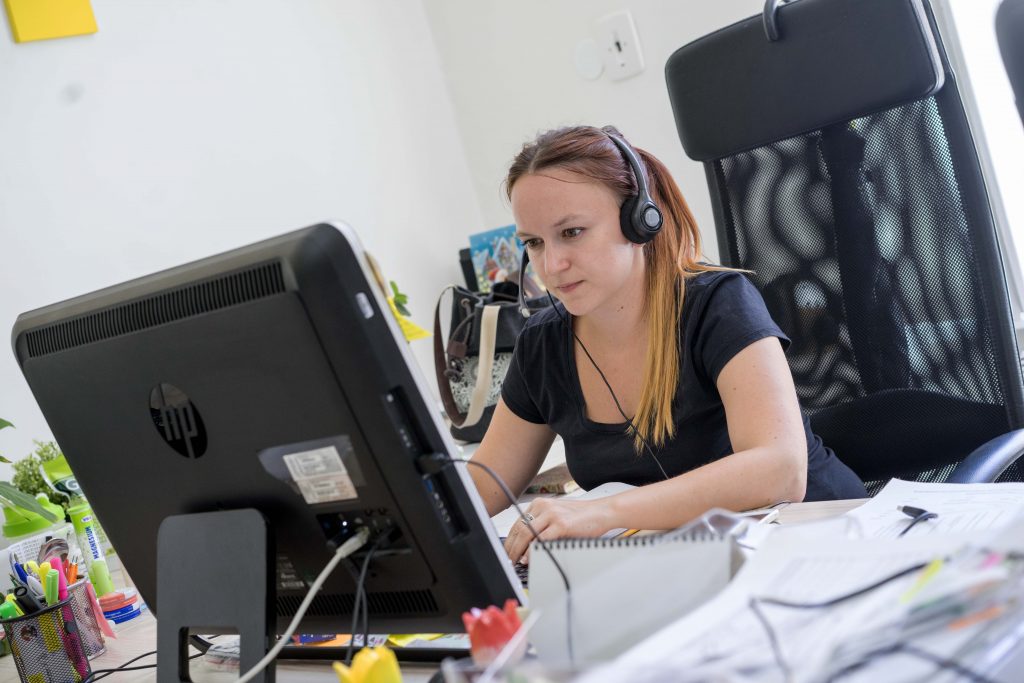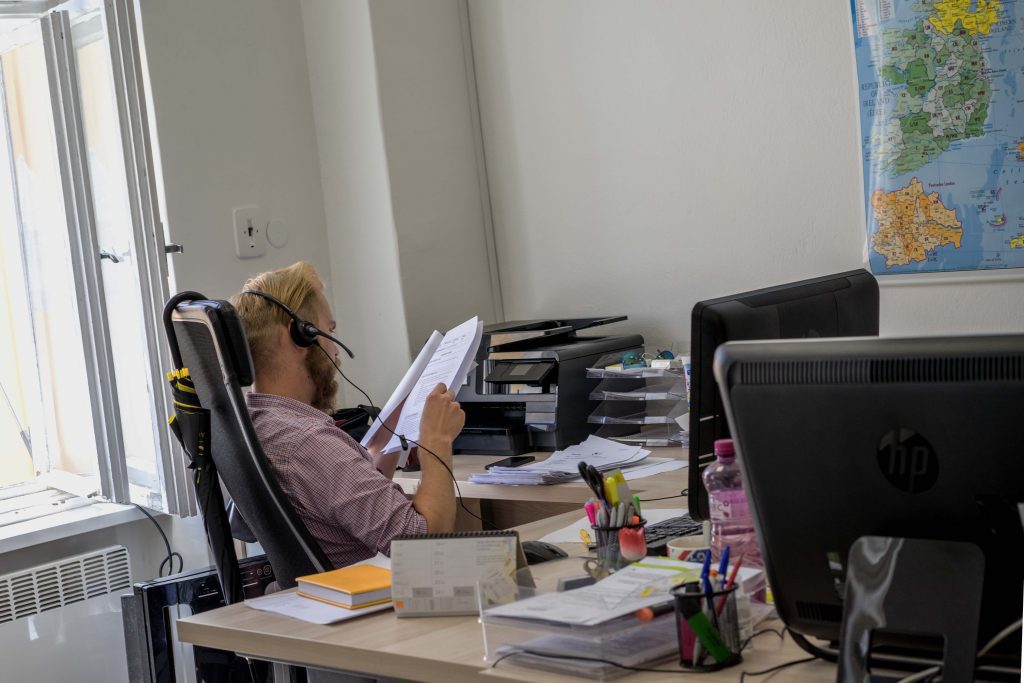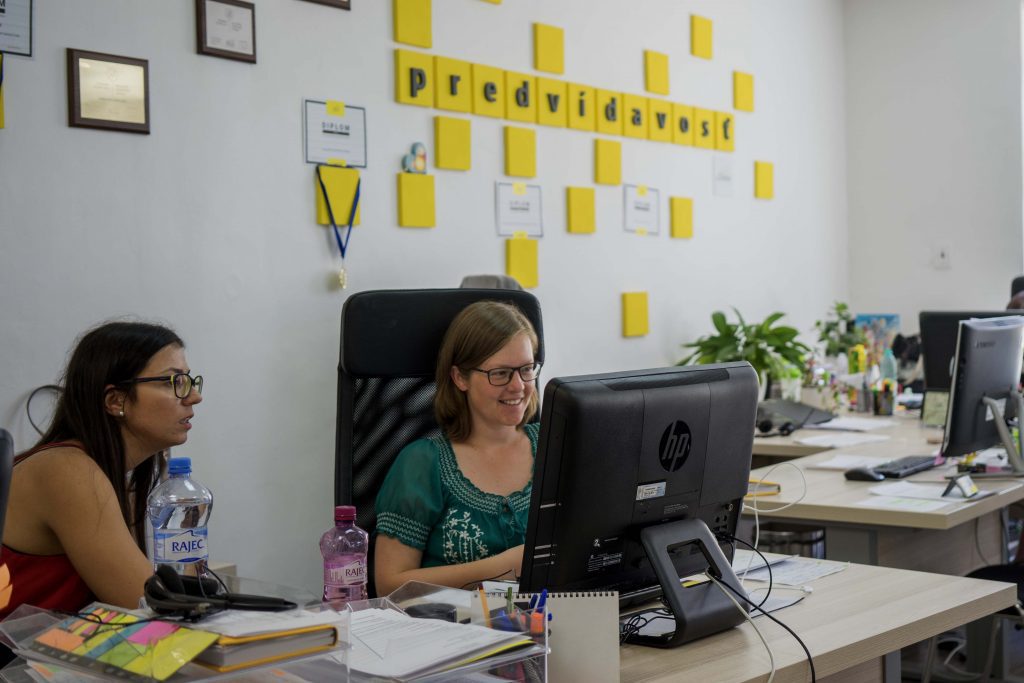When an uninitiated person enters this office, you will be amazed. Perhaps he will take a moment to recover from what is happening before his eyes, or rather from what he hears. The work pace is high.
The office desks stand side by side, forming the letter U. Behind each computer sits a man or woman with headphones in his or her ears. They talk over each other and English sounds through the room. They stare intently at their monitors, joke with the person on the phone, throw facts at them and repeat their questions articulately.
We are in the English department of Atena recruitment agency and these people are its English managers. Every day, they are contacted by phone by caregivers from Eastern and Central Europe, as well as by people who have already found a job in the Netherlands or England.
Virtual advisors
A Slovak woman, Maria, has just got off the train in London. She is travelling to visit her family about 90 kilometres from the capital, where she has found herself for the first time in her life. Zuzana Nemcová will take her call. A lady is standing in the middle of the station and wants the manager from the Banská Bystrica office to guide her to the metro. “We deal with situations like this on a regular basis. Even if we send detailed information to the carers, they don’t print it out and then we do the helpers on the phone,” Zuzana assesses.

Yet we live in a world of modern technology. The young manager clicks on the satellite-controlled map and suddenly she is standing almost next to her client – virtually. “Exit the station, go left, walk past the hotel, cross the intersection and go down the stairs to the subway,” Maria directs.
Reinvent yourself
A manager in this agency must be equipped with several qualities. She has to reinvent herself – just like Susan, when the situation calls for it. Pick up the phone in a good mood, and keep a cool head when the going gets tough. In fact, foreign employees call Athens with anything.
“When the heating doesn’t work, when the internet doesn’t work and when the family hasn’t prepared their bedding. They call when the health of the senior they are caring for changes, even when they die. This also belongs to the life and work of a caregiver. And we have to respond. Contact the family, resolve complaints, call an ambulance. And it doesn’t matter at all that we are more than a thousand kilometres away from them,” explains Zuzana.

Optimistic phlegmatics
Michal is sitting by the window in the corner of the office, getting information from the woman on the other side of the phone. “And how are you with driving, miss, do you have a license?” He fills out the questionnaire, ends the call, and sips from his coffee. Hectic and quick. Those words supposedly best describe his profession.
“You work with people every day, so you can’t be a choleric. Rather phlegmatic to get through any situation. But at the same time, he’s optimistic because he has to support the caregivers, be their moral support,” he explains. Michal has been working in Athens for two years, and his colleagues humorously say that he spoils his babysitters. “You know that when you have a good relationship with them, you can put them at ease and at the same time you make everything a lot easier to deal with together.”


He likes his job because even though it is exhausting, it puts him in a new situation every day. “What do I appreciate the most? That we are a great collective. We can rely on each other 100%. Even now my colleague is on vacation and her clients call me,” Michal describes.
Energetic diplomats
The athletes in this department have to handle at least sixty phone calls a day. Sometimes they climb up to a hundred. They also speak to families and foreign agencies that place their employees with Dutch and English families. They have to work with energy, but remain diplomats, have business spirit, enthusiasm, but keep their distance and professionalism.
Even when the caregiver calls them on the day of her planned departure to say that she will not be going to the agreed place where her family is waiting for her because her grandmother has died. “I take note of this most common excuse ever and urgently look for a replacement. This is also what our work is about,” adds Zuzana Nemcová.







